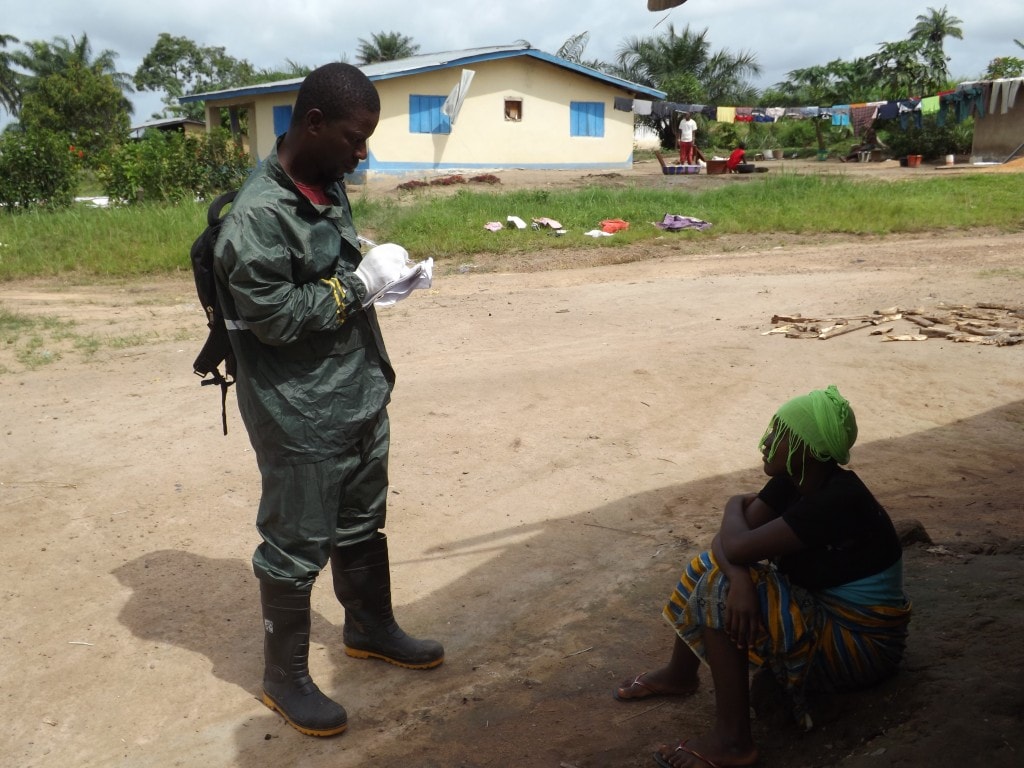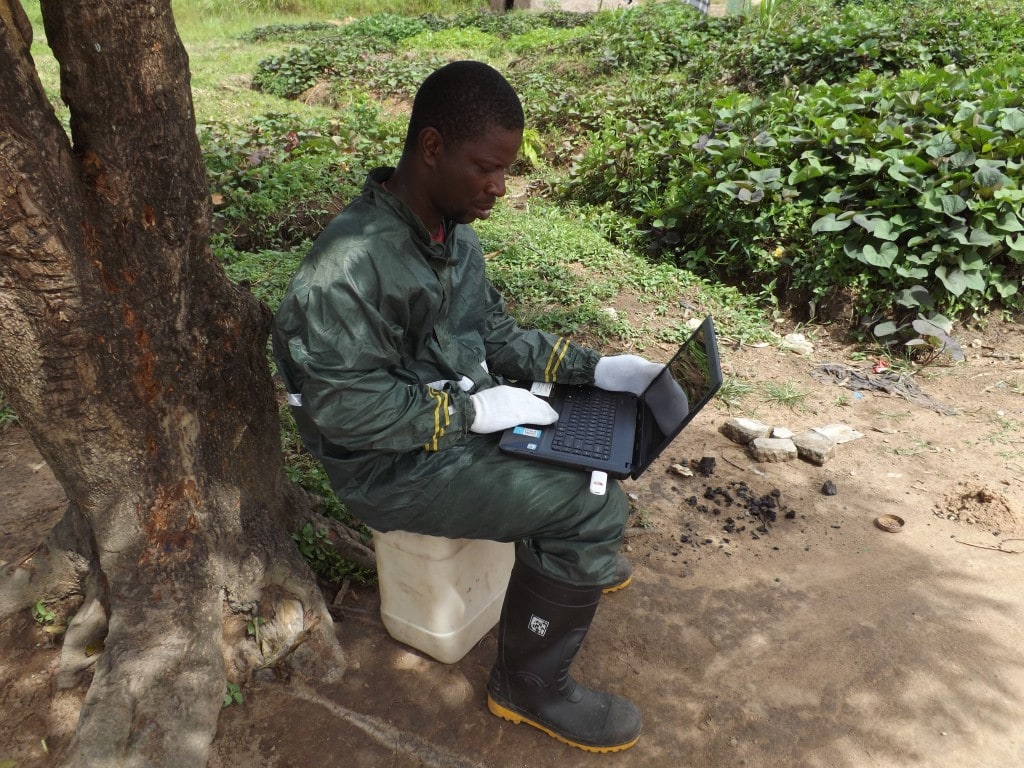Kolubah Akoi didn’t start out to be a hero. But when the Ebola crisis hit Lofa County in Northern Liberia in July, instead of fleeing, the JHR-trained journalist decided to stay and report on the impacts of the devastating disease.
Kolubah credits his JHR training for giving him both the skills and the courage to stay and report on the epidemic. “I said to myself, I was trained as a Human Rights Journalist, trained to serve humanity,” he explains. “As a Human Rights trained journalist, there are human rights issues that need to be reported and if I leave who will inform the world? The government shut the road and quarantined the entire county without providing food for us. Who will tell the story behind the barricade?” After graduating from the University of Liberia, Kolubah wasn’t working as a full time reporter when the Ebola outbreak began. But in July, he saw a man on the street bleeding from his ears, vomiting, and calling for help. Kolubah posted a photo of the man on Facebook and asked for someone to come and take him to the hospital. But no one came. The local Ebola Treatment Unit operated by Samaritan Purse was way past capacity – with 75 patients. “From that moment everything changed in my life,” Kolubah explains. Family and friends begged him to leave. He considered leaving, but decided to stay and cover the epidemic. “No news is worth dying for,” he acknowledges. “But I felt guilty in my heart for those that were dying before my very eyes and (I) needed to let the world know.” He systematically reported on the number of people getting infected each day, posted photos of victims and told stories of survivors and the victims on his Facebook page. Kolubah’s photos and stories were picked up by international media.
What he saw shocked him – a “collapsed health care system, frightened nurses and doctors and ordinary citizens.” But throughout his reporting he remained steadfast to his mission – telling the world about events in Liberia. At first, he reported without ideal protective equipment – no hazardous material suit or triple layered surgical gloves or face masks. Instead he used a rain coat, rubber boots and socks on his hands. He has a protective PPE suit now, but covering the crisis is still risky.
Says one of his JHR trainers’ CBC Radio’s Bonnie Allen: “I believe Kollubah’s coverage made a real difference. His reporting can be crediting with convincing people that Ebola is real, and deadly, and for helping to change risky behaviours…The JHR training he received seemed to light a fire in him, and he’s been dedicated to exposing human rights issues ever since. He became a critical source of information at a time when misinformation was largely to blame for the deadly virus’ spread.”
Kolubah received his JHR training while he was at the University of Liberia and he was a founding member of the JHR Liberia student chapter and its first president. The training he received was invaluable, Kolubah said. Not only did he learn how to navigate social media thanks to the training, but also had a broader understanding of human rights issues such as abuse and human trafficking and international human rights laws. He is indebted to the organization for the skills he has learned. And believes he wouldn’t have been able to report on the crisis without the JHR training. “JHR has been a game changer in my professional development as a journalist.” He questions what took journalists from the rest of the world so long to cover the outbreak. “I just wondered if Ebola had not entered Monrovia, USA or other parts of the world, would there be the excessive coverage and response that we are seeing right now.”
“Kolubah was one of the only people prepared to stay in Lofa and update the world on what was happening there – whether it was information that the government wanted out or not,” adds JHR trainer and BBC Ivory Coast correspondent Tamasin Ford. “He’s incredibly courageous and I’m convinced his efforts helped to shine more light on what has been happening in Lofa – and in turn mobilize more people to do something about it.” For his efforts and his remarkable use of social media to tell the world about the virus, Kolubah has been named a Humanitarian Hero by both the United Nations and the African Union. – by Debra Black for JHR




